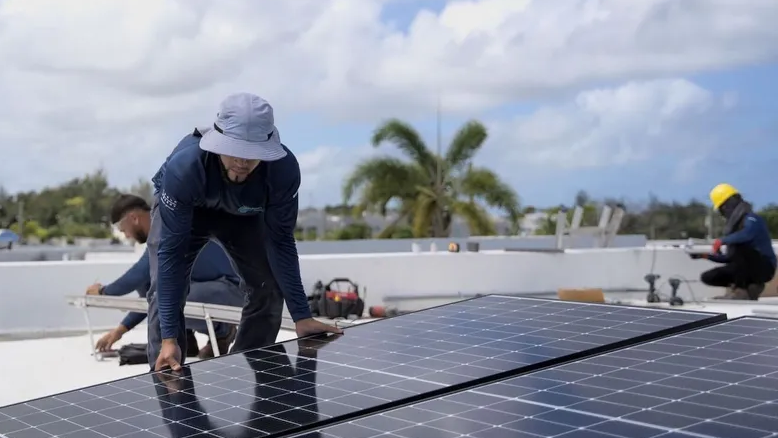This story was originally published by Canary Media. In Puerto Rico, residents are turning to rooftop solar and backup batteries for a more reliable, affordable, and cleaner alternative to the central power grid. Fire stations, hospitals, schools, and families with urgent medical needs are increasingly adding solar-plus-battery systems each year. This technology has become vital for the U.S. territory, which suffers from prolonged power outages and extreme weather events. However, a political challenge from a powerful government entity threatens to slow down this progress, according to local solar advocates and Democratic members of the U.S. Congress. This new development could make it difficult for communities and lower-income households to access clean energy technology, potentially hindering Puerto Rico’s goal of achieving 100% renewable electricity by 2050.
The issue revolves around Puerto Rico’s net-metering program, which compensates solar-equipped households for the electricity they provide to the grid. Governor Pedro Pierluisi extended the existing net-metering policy through 2031, emphasizing its importance in promoting solar systems on the island. Despite this, the Financial Oversight and Management Board (FOMB) is working to overturn the law, claiming it undermines the independence of energy regulators.
While the U.S. government is investing heavily in renewable energy in Puerto Rico, including a Solar for All initiative grant, opposition to the net metering extension threatens the progress made in clean energy adoption. Solar advocates and policymakers have urged the FOMB to preserve net metering, emphasizing its crucial role in making solar installations economically viable for households and businesses.
Net metering has been a key driver of solar adoption in Puerto Rico, with over 810 megawatts of capacity installed across 117,000 homes and businesses. These installations have significantly increased renewable energy generation on the island. However, threats to undo net metering incentives could stall further growth in the sector.
Efforts to repeal or amend the net-metering extension allow regulators to revisit the policy only after January 2030, with changes impacting new customers. While the FOMB claims Act 10 is inconsistent with a fiscal restructuring plan, solar advocates argue that these efforts could endanger the economic growth and environmental benefits provided by renewable energy in Puerto Rico.
Renewables represent 12% of the island’s electricity generation, driven by small-scale solar and battery installations supported by net-metering policies. The push to revise net metering could reverse this progress, affecting the island’s economic development and environmental goals. Solar advocates and policymakers continue to fight back against attempts to dismantle net metering, underscoring its importance in Puerto Rico’s energy transition.





